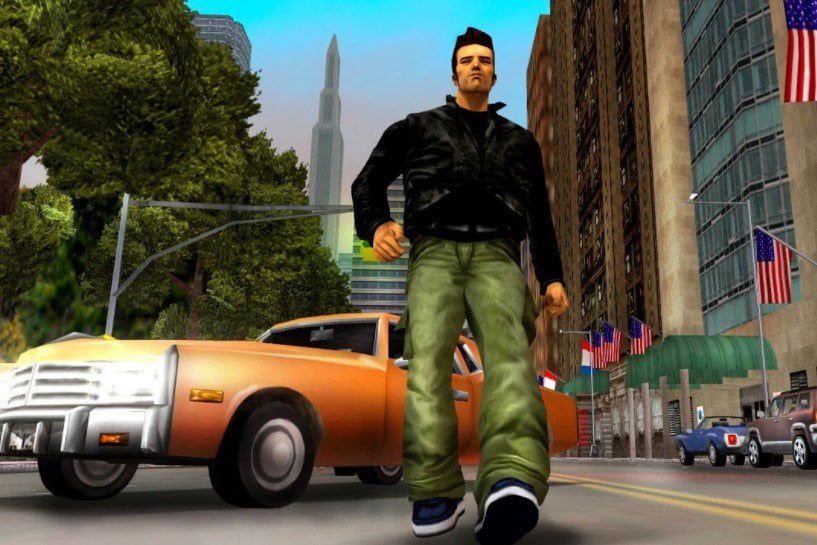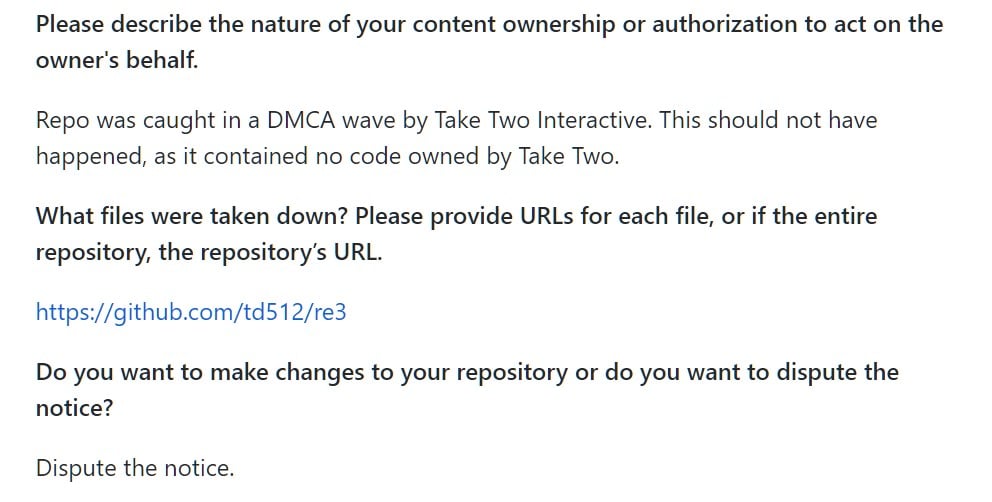 In February, a group of developers released a project that had many passionate GTA fans excited.
In February, a group of developers released a project that had many passionate GTA fans excited.
After years of work, they published “Re3” and “reVC,” two fully reverse-engineered releases of the GTA III and Vice City games, which were originally released two decades ago.
The reverse-engineered code opens the door to many tweaks and modifications that make the old games much more playable on modern computers. Importantly, however, an official copy of the games was still required for the code to work properly since game assets are not included.
Take-Two Takes Down Reverse-Engineered GTA Code
GTA fans welcomed the releases with open arms but the same can’t be said for Take-Two Interactive. A few days after “Re3” and “reVC” were posted on GitHub, the game publisher took them offline, claiming copyright infringement.
“The content in the links below consists of copyrighted materials owned by Take-Two. The use of our copyrighted content in these links are unauthorized and it should be removed immediately,” Take-Two Interactive wrote.
When the news first broke, project leader “aap” said that the team was considering possible options to restore the code. That is not without risk. Under US law, reverse-engineering can be seen as fair use, but this area is a bit of a minefield that could open the door to an expensive legal battle.
The DMCA takedown notice didn’t just target the official GitHub repository. There were more than 200 forks that were pulled offline too. One of these forks was created by a New Zealand-based developer named Theo, who, unlike the main developers, decided to take a stand.
Fork Owner Sends Counter-Notice
Last month, Theo submitted a counter-notice, arguing that his fork was taken down without a proper reason. “This should not have happened,” he informed GitHub.

Speaking with TorrentFreak, the developer says that the reverse-engineered code is not completely identical to Take-Two’s original. Since it’s not copied verbatim, he believes that the game publisher can’t claim it as theirs.
“It would appear that the code in the re3 repo is reverse engineered, not a straight decompilation. I believe Take-Two’s claim to be wholly incorrect if this is the case, since the code may be functionally identical, but not exactly identical, they hold no claim to the code.
“I do not agree with how Take-Two handles events like this,” Theo adds, referencing an earlier debacle when Take-Two targeted the OpenIV modding tool. “Taking down code that does not belong to them is abhorrent.”
Github Restores Forked Repository
While this may seem like a David vs. Goliath battle, the developer’s counter-notice was successful. After two weeks, GitHub restored the fork, which is now accessible to the public again.
This doesn’t mean that GitHub has taken sides. The DMCA rules simply dictate that disputed content has to be restored between 10 and 14 business days, unless the rightsholder takes legal action.
Theo tells us that he hasn’t heard from Take-Two in response to his takedown notice. While he’s aware of the legal risk that he faces, the developer doesn’t expect the game publisher to pursue this any further. This would mean that the reverse-engineered code remains online.
From: TF, for the latest news on copyright battles, piracy and more.
0 Commentaires